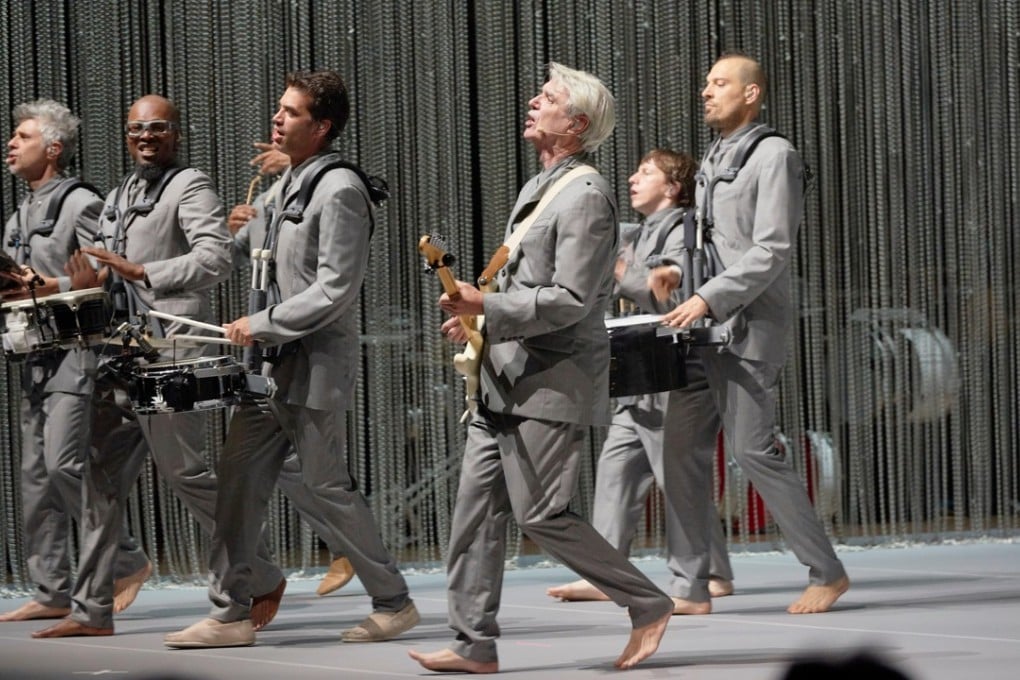Talking Head David Byrne on creating his ‘American Utopia’ and pushing boundaries in a partisan world
Ahead of his performance at Clockenflap in Hong Kong, the brilliantly inventive former Talking Heads frontman and keen cyclist reveals how he is using technology to realise his vision, with shows so out of the box they are hard to describe

David Byrne is not tired. Maybe David Byrne is never tired. Months into his “American Utopia” tour, with months left to go (during which there will be a Hong Kong visit), Byrne, dressed in a pressed, white, tropical shirt with an iced tea in hand to ward off the central Texas heat, is fresh-faced and eager to talk when we meet in a conference room at the InterContinental Stephen F Austin Hotel, in Austin. A much younger man could be forgiven for wanting to sleep in, on this, a rare day off, especially after a show like the one he put on the previous evening.
Byrne treated nearly 3,000 people at Austin’s Bass Concert Hall to a spectacle of constant motion and precise choreography that was, in some ways, more akin to a ballet than a traditional rock ’n’ roll show – albeit a ballet in which the dancers had to perform while lugging around guitar, keyboard and full drum kit. But for this 66-year-old, rest is the furthest thing from his mind. He is eager to get this interview finished so he can visit some of Austin’s art galleries – before going for a long bike ride.
Byrne, who was born in Dumbarton, Scotland, and arrived in the United States as a young boy, was a founding member and lead singer of Talking Heads, among the most important and groundbreaking bands in popular music history (with hits including Psycho Killer, Burning Down the Houseand Road to Nowhere). Since the band split up, in 1991, Byrne has produced a rich body of solo work and collaborated with artists such as Brian Eno and St Vincent; he has written books about music and his other passion, cycling; he has founded “Reasons to Be Cheerful”, a project for which he aggregates increasingly scarce good news; and he has tried his hand at theatre, producing Broadway’s first “disco opera”, Here Lies Love, in collaboration with Norman Cook, aka Fatboy Slim.
Behind the scenes, Byrne and his team have pioneered new technologies and adapted existing ones in the production of performances that would have been impossible to stage even just a few years ago.
“I am aware that you can lose people if you do too much,” he says, laughing. “They just think you’re a show off.”

And a show-off Byrne certainly is not – he is normally reticent to discuss Talking Heads, although, in promoting his new album, American Utopia, and its tour, he has been willing to invoke the past, describing his new work as his first solo music in 14 years (which is technically true) and comparing the show to the groundbreaking 1984 concert film Stop Making Sense.
